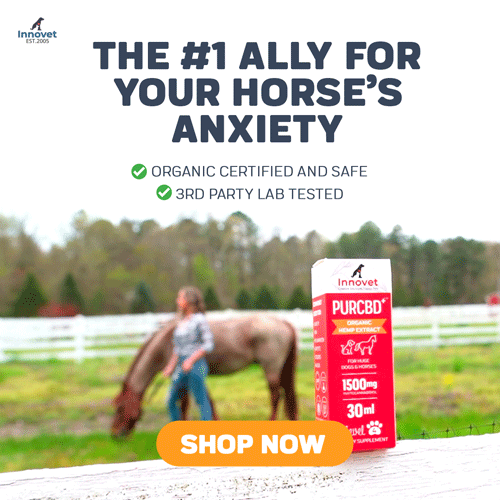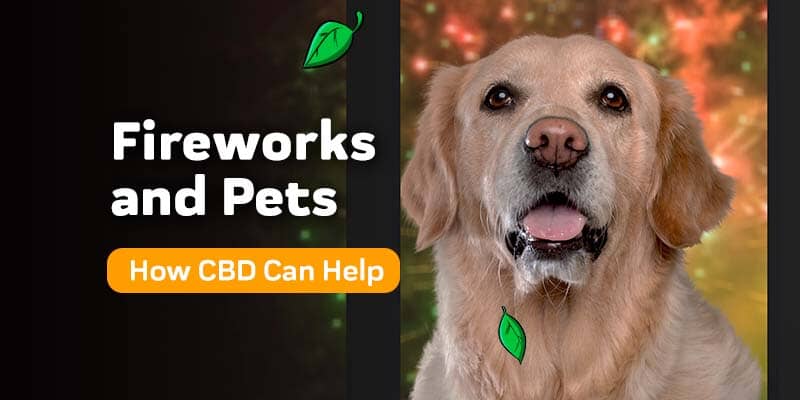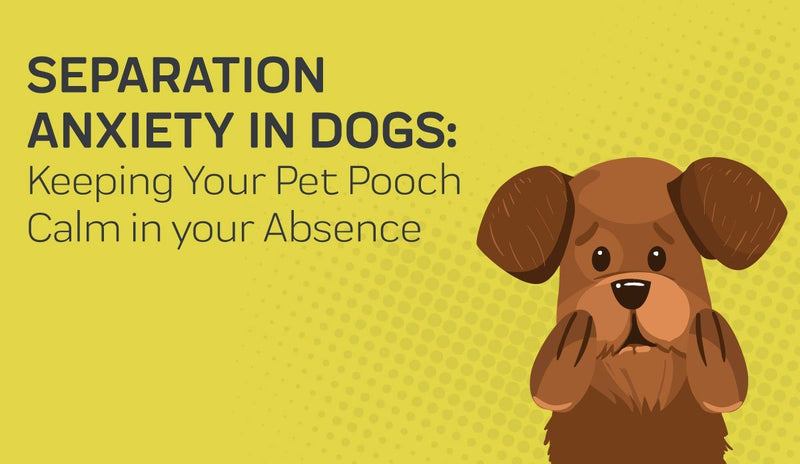- Better Understanding Stress
- What Kind Of Anxiety Do Horses Have?
- What Are Side Effects of Horse Anxiety That Horse Owners Should Know About?
- How To Treat Anxiety?
- Are There Natural Alternatives To Treat Equine Anxiety?
- CBD For Horse Anxiety
Horses can experience anxiety, just like humans.
Horses truly can have anxiety just like we do. Many people experience anxiety in all sorts of situations. People get anxious about driving in rush-hour traffic, going to a crowded place where there are a lot of people, or starting a new job. These are just a few examples of when a person may experience anxiety.
Obviously, there are many more reasons and situations a person can get anxious.
Equines experience stress just like their owners do. Their reasons for anxiety are often complex and unique to each horse. After all, they are each individual just like we are. Some people never really have given much thought to whether or not a horse might experience anxiety.

Better Understanding Stress
Owners of equines often find out that their horse has anxiety when they see it for the first time and it is often unexpected. It often occurs in a situation that is new for the horse. Sometimes, it does occur in a situation that they have experienced before and have developed a lasting fear and anxiety about it.
Think about what it is like to be a horse. They are born wild animals and have an evolutionary tendency to want to run wild and do as they please. They were often pursued by larger animals and had to flee on a dime. Horses are herd animals who for centuries have almost always run with a herd. This is common in many animals.
For example, elephants have traveled in herds for centuries to protect themselves and their young from predators like lions, hyenas, and wild dogs.
Elephants protect each other by being in a herd and often drive away predators by beating them in both size and numbers. Interestingly, baby elephants travel near the legs and stomach of the mother so that they can be protected within the herd. Horses traveled in herds for survival and protection, just like elephants.
What Kind Of Anxiety Do Horses Have?
Let's go over some of the most common types of equine anxiety in this article so that owners can better understand it.
Equine Situational Anxiety
Being around new people or animals can be anxiety-inducing to horses as they do not know them and aren't sure how to react. This is understandable as we humans also get anxious sometimes in these situations as well. Horses have to get used to something new just like people do.
Separation Anxiety in Horses
Horses can get separation anxiety. Separation anxiety is when a horse feels anxious when being separated from a familiar person, animal, place, or thing. This is completely understandable as any person or animal can feel this way.
Horses that have to be transported by strangers or that must go to a different place for training or care often experience separation anxiety. They are used to their surroundings and those familiar faces that they see daily and being taken from that familiarity can be stressful and cause stress for horses. Also, being separated from horses or other animals that they have become used to can cause separation anxiety as well. For example, mother horses and baby horses that are separated may very well experience separation anxiety. Horses separated from their herd can have it, too.
Training Anxiety in Horses
People experienced with horses have often had to deal with the headache of training a horse. Even highly experienced horse trainers have dealt with some difficult horses that seemed almost impossible to train.
It is simple to see why some horses get anxious about training. They are being put into a situation that is new to them and dealing with things they aren't used to. Getting trained for horseback riding, being guided by a handler, or getting in a trailer can be very stressful for a horse that has never dealt with these things before. Some are just wild and do not want to be tamed or forced to do anything. Others are very anxious about being trained.
This is quite common. In fact, many equine owners and trainers have reported dealing with this in their horses. When this occurs, it can be much harder to train the horse and it becomes a source of stress for the handlers and the horse.

Arena and Performance Anxiety
Show horses or those that perform for crowds have a risk of performance anxiety. Famous people have reported having performance anxiety before big concerts in front of fans. Regular people can get it before job interviews, speeches, or other performances. A horse that has to perform in an arena of a show often knows when they are about to have to perform. There are signs that surround them that they recognize before a performance. This is when a horse often begins to show signs of performance anxiety.
It is often very evident that they are agitated if they are experiencing performance anxiety or arena anxiety. Some horses dislike performing before a crowd and find that they are anxious before large crowds of people. This is not unusual and is actually somewhat common in equine performers. There are many horses that perform in arenas for obstacle courses, equine shows, and more.
Equine Travel Anxiety
Travel anxiety in equines is not a rarity. Many equines have travel anxiety. It is most common in traveling in a horse trailer. Horse trailers are the most common way for horses to get from one place to another.
Horse trailers are made specifically for transporting horses and livestock. They give equines space and are customized for their needs. However, for animals that are used to having space and nature surrounding them, it can cause a lot of nervousness.
Equine travel anxiety is much more common than people realize. Experienced horse trainers and owners have likely experienced a horse that has anxiousness about getting into and traveling in a trailer. Getting an anxious horse into a trailer is quite a task and can take much more time than it does for horses that aren't nervous about traveling.
What Are the Symptoms of Horse Anxiety?
One of the most common symptoms of nervousness is shaking. Their bodies will begin to tremble and there will be a visible shake. Horse owners can notice it if their skin is trembling as they touch them or if they can see it with observation.
Weaving and walking around in circles in their stall is another common symptom of horse anxiety.
Another symptom of anxiety is going to their corner of the stall and staying put. They will go to the corner of the stall and not move if they are experiencing anxiety. You may notice excessive eye-rolling.
Other symptoms of equine anxiety are horses running away at a frantic pace, rearing and using their front legs for defense, or whinnying excessively.
An occasional show of fear or anxiousness is quite normal. However, frequent showing of symptoms points to a sign that there is a more serious issue going on.
What Are Side Effects of Horse Anxiety That Horse Owners Should Know About?
Nervousness in horses can have terrible consequences and side effects. It can cause them to undereat and experience nausea when eating or drinking. This means that horses with serious anxiety can begin to become malnourished and suffer from the consequences of that. They will begin losing body fat, muscle mass, and imperative vitamins and minerals.
Equines that run off when anxious or that pace a lot are prone to muscular injuries. They are prone to ligament tears and breaks. They also can have hooves that are in bad shape. It causes their bodies to wear down much faster than it should be.
Some horses are prone to bumping their heads into objects when they are upset or experiencing anxiety, and they may have head injuries. Horses that are bumping their heads into objects will likely need emergency treatment so that they can get evaluated. Some head injuries can be very serious and affect their health. This is why it is crucial to get them to the veterinarian as soon as possible.

Colic
Some horses can get colic and severe constipation as side effects. Severe constipation can cause colon impact that can be deadly as it gets stuck in their bodies and not getting eliminated. Severe constipation in a horse will require immediate veterinary care. They will be given medication or treatment that will help relieve them of their impact right away. This is to relieve them of their pain and impact and possibly to save their lives. Horse owners that have an equine with serious constipation or severe colic will need to contact a veterinarian that they trust for an emergency appointment. In some cases, it may require after-hours care at an emergency vet clinic or office.
Equines with colic are very hard to handle.
Horses with severe anxiety and colic are in danger of developing life-threatening issues. It is highly recommended to get them an appointment on an emergency basis if they are suffering from these medical conditions. They can take a turn for the worse very quickly, and that is why it is imperative to get them veterinary care immediately. Their ability to take in calories and vitamins is very limited when they are dealing with colic and anxiety. This further shows why horse owners and trainers need to get quick and effective treatment for their horses on an emergency basis.
Some equine owners have a very hard time managing a horse that has these serious anxiety problems. They may not be equipped to handle such a horse. This is a very sensitive and delicate situation. Sometimes, it will be best if they get to a therapeutic place where they can be taken care of by expert trainers that have experience with anxious animals. Other times, it will just require a lot of patience and veterinary care to get them to a better and healthier place.
How To Treat Anxiety?
When treating anxiety, it is necessary to figure out what causes your horse stress. Taking notes and remembering when they display anxious behaviors is imperative in helping to pinpoint the triggers of anxiety. Bringing that information along with you to the veterinarian will be very helpful in giving them the ability to diagnose and treat your horse for anxiety.
Veterinarians can help in the diagnosis of anxiety. They are medically trained to diagnose and help animals and have the knowledge required to do so. They have likely dealt with many animals that have anxiety disorders. This can help them to better recognize the signs for a diagnosis. Veterinarians can also give recommended treatments to equine owners that may include therapeutic treatments and/or medications that they feel will benefit them.
Are There Natural Alternatives To Treat Equine Anxiety?
Perhaps one of the best natural alternatives to medications for equine anxiety is full spectrum CBD oil. Horse parents that are worried about side effects and medications being given on a long-term basis may want to consider giving CBD.
CBD is an all-natural, totally organic option that can be given to horses with anxiety that has zero side effects. There are absolutely no serious side effects for horses that are given CBD for therapeutic purposes. This is a great relief for horse owners that have had horses that have experienced horrible side effects after taking prescription medications.
CBD For Horse Anxiety
CBD Oil For Horses is made specifically for equines. Derived from the industrial hemp cannabis plant. Contains less than .3% THC and that is important for legal reasons. In the United States, thanks to the Farm Bill, both hemp and CBD are legal when they contain less than .3% THC. THC is what causes psychoactive properties.
Therefore, products that contain less than .3% THC are legal and also do not cause any “highs”. This is important for horse parents to understand as there is still some confusion over CBD products and their relation to marijuana and the cannabis plant.
CBD oil for horses anxiety has been shown in research and clinical studies to lower nervousness and its symptoms significantly. Horse owners can also use it to help with inflammation, pain, appetite loss, nausea, and much more.
CBD for horses is not always a cure for nervous behavior, but when used in tandem with training, most owners swear by it. CBD oils and other CBD products can be given to other pets, including dogs and cats. Hemp extracts like CBD work by activating the endocannabinoid system, which instills internal balance and calm. Unlike THC products it does this without causing a high. CBD dose for your horse will be based on their weight and the concentration of the CBD product.
Other Full Spectrum CBD Oil Products
Other great equine CBD products include CBD creams, great for chronic pain and inflammation. As well as hemp horse CBD paste, easy for directly giving or placing in their regular food. Derived from the hemp cannabis plant, making them essentially free of THC.
Final Words
CBD can be the perfect thing for getting your horse's daily routine back in tip-top shape, thanks to its ability in easing anxiety, inflammation, pain, and more. Clinical trials and anecdotal evidence have shown that adverse effects from CBD and other hemp products are rare. Potential interactions can occur with certain prescription drugs, so please consult your veterinarian first. Together you can work to find the best therapeutic dose. If prescription medication isn't a concern, follow the back of your CBD product's label for proper dosages.
Sources:
Using an Isolation Test in Combination with a Questionnaire SurveyEQUINEPCR PELLET LOVERS BUNDLES
Anxiety in Horses
Cannabidiol as a Potential Treatment for Anxiety Disorders
Approved by:
Dr. Ivana Vukasinovic
Doctor of Veterinary Medicine, University of Belgrade
 Ivana Vukasinovic grew up in Serbia and attended the University of Belgrade where she received a degree in Veterinary medicine in 2012 and later completed surgical residency working mostly with livestock. Her first year of practice was split between busy small animal practice and emergency clinic, and after two more years of treating many different species of animals, she opened her own veterinary pharmacy where an interest in canine and feline nutrition emerged with an accent on fighting animal obesity. In her free time, she acts as a foster parent for stray animals before their adoption, likes to read SF books, and making salted caramel cookies.
Ivana Vukasinovic grew up in Serbia and attended the University of Belgrade where she received a degree in Veterinary medicine in 2012 and later completed surgical residency working mostly with livestock. Her first year of practice was split between busy small animal practice and emergency clinic, and after two more years of treating many different species of animals, she opened her own veterinary pharmacy where an interest in canine and feline nutrition emerged with an accent on fighting animal obesity. In her free time, she acts as a foster parent for stray animals before their adoption, likes to read SF books, and making salted caramel cookies.
Thanks for stopping by!
P.S. We Love You!
Sincerely,
The Innovet Team
Please do not ask for emergency or specific medical questions about your pets in the comments. Innovet Pet Products is unable to provide you with specific medical advice or counseling. A detailed physical exam, patient history, and an established veterinarian are required to provide specific medical advice. If you are worried that your pet requires emergency attention or if you have specific medical questions related to your pet’s current or chronic health conditions, please contact or visit your local/preferred veterinarian, an animal-specific poison control hotline, or your local emergency veterinary care center.
Please share your experiences and stories, your opinions and feedback about this blog, or what you've learned that you'd like to share with others.
















